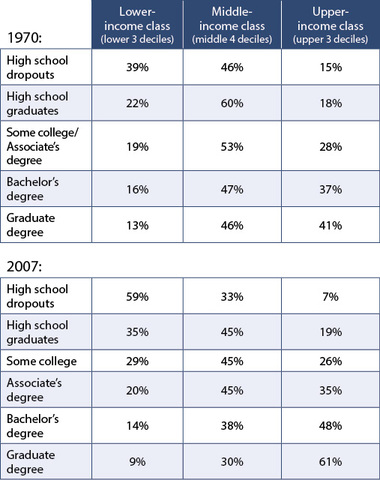The public discussion continues about whether the cost of an undergraduate education is worth the effort and expense. Almost everyone seems to know someone with a son or daughter living in a spare room despite having a degree from a high-priced college or university--and with a significant loan to repay. Furthermore, to read the public press, one might conclude that the majority of recent graduates cannot find jobs. Clearly, the problems of some recent graduates and the public perception that institutions are profligate in spending are troubling for university administrators and boards, especially as they confront the prospect of further tuition and fee increases in the face of growing expenses within and beyond their control (general liability and employee medical insurance, food, student health insurance, and complying with new government regulations, etc.). Thus, as a university president, I appreciated a 2010 research-based report from the Georgetown University Center on Education and the Workforce titled Help Wanted: Projections of Jobs and Education Requirements Through 2018. It provided compelling data in support of the value of a post-secondary education in today's world. And now a recent report released by the U.S. Department of Labor (DOL) further buttresses this position.
The 2010 Georgetown study asserted that colleges and universities represent only 35 percent of the post-secondary education and training system in the United States. However, colleges provide a vital gateway to the jobs offering the most employer-provided training and access to the most powerful workplace technology. In fact, college graduates are almost twice as likely as high school graduates to receive formal training from their employers. The authors add that a college degree is key to unlocking access to the middle class, or better. Noting it is true that the middle class is declining, they point out that it is "more accurate ... to say that the middle class is dispersing into two opposing streams of upwardly mobile college-haves and downwardly mobile college-have-nots" (the latter referring to those with only some college, a high school degree, or high school dropouts). Their research found that 60 percent of high school graduates in 1970 made it to the middle class, but by 2007, only 45 percent of high school graduates were in the middle class, and only 7 percent in the upper three deciles of income. At the same time, those with bachelor's degrees went from 47 percent in the middle class down to 38 percent, but the proportion in the upper three deciles went from 37 percent to 48 percent.

Source: Georgetown Center on Education and the Workforce, Help Wanted: Projections of Jobs and Education Requirements Through 2018.
Projected lifetime earnings also are a factor in support of earning a college or university degree. From a statistical standpoint, a higher education continues to offer a significant premium, and the authors posit that it is irresponsible to suggest otherwise. Using U.S. Census Current Population Survey data, the Georgetown Center report calculated the average 40-year career earnings using 2008 dollars, given the current and projected labor market value of various levels of education. The data show that a high school degree is worth $569,000 more than being a dropout; having some college but no degree adds an estimated $473,000 more; completing an associate degree further adds $15,000; and completing a bachelor's degree adds another $1.1 million, 45 percent more than a high school diploma. Further formal education continues to pay off with a master's degree worth nearly a half million dollars more and a doctorate or professional degree adding even higher expected lifetime earnings. All of this was interesting, but what really got my attention was the authors' discussion of how college and university graduates fared better during the low points of the so-called "great recession." They called a college degree "the best umbrella in a recession."
- "The unemployment rate for college graduates in April was a mere 3.9 percent, compared with 7.5 percent for the work force as a whole. ... Even when the jobless rate for college graduates was at its very worst in this business cycle, in November 2010, it was still just 5.1 percent."
- "The number of college-educated workers with jobs has risen by 9.1 percent since the beginning of the recession. Those with a high school diploma and no further education are practically a mirror image, with employment down 9 percent on net."
- "In 2011, the unemployment rate for people in their 20s with at least a bachelor's degree was 5.7 percent. For those with only a high school diploma or a G.E.D., it was nearly three times as high, at 16.2 percent."
- "In 2012, the typical full-time worker with a bachelor's degree earned 79 percent more than a similar full-time worker with no more than a high school diploma. For comparison, 20 years earlier the premium was 73 percent, and 30 years earlier it was 48 percent."